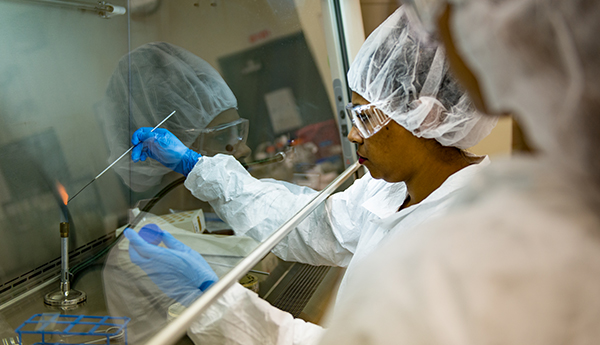Career Exploration and Pathways
Biotech careers fall into five main categories:
- Research and development, which focus on discovering new products and developing them so that they can be marketed and sold. This can include laboratory and technician roles, as well as research associates and more specialized roles caring for animals or greenhouses.
- Manufacturing and services, which takes a product developed through the research and development process and takes it into production so it can be sold widely. This includes getting necessary government approvals (particularly documenting that a facility meets Good Manufacturing Practices and Good Laboratory Practices), and then manufacturing the product at enough scale that it can be sold.
- Quality and regulatory affairs, which requires making sure that the biotech product is being produced properly and functions the way it was intended. Employees working in this area may conduct tests of materials and/or make sure that regulations are followed, keeping careful records of tests and procedures.
- Sales and technical support, associated with everything required to sell and promote biotech products and respond to customers’ needs.
- Administrative and management, as in any other industry, that keep everything from research and development to production to quality assurance to marketing and sales running smoothly and efficiently.
Solano Community College classes emphasize the manufacturing aspects of biotech, but also give students exposure and practical skills that are valued in every part of biotech, such as problem-solving and teamwork.
Many of our graduates move up quickly, after starting in entry-level jobs. Because this is a fast-growing industry and is likely to be that way for many years to come, the field is full of opportunities, no matter where and how you may enter it.
Health, agriculture, biofuels, defense, and even criminal justice (which uses DNA fingerprinting, a biotech process, in forensic investigations) all have aspects of biotech leading the way into future opportunities.
For specific information on what a biotech career would require in terms of day-to-day tasks, what the job outlook and wages are expected to be, and what kinds of classes and certifications you’d need for that particular career, visit the California Employment Development Department’s Labor Market Information Division, which issues a report on biotechnology jobs/careers in California in April 2013.
